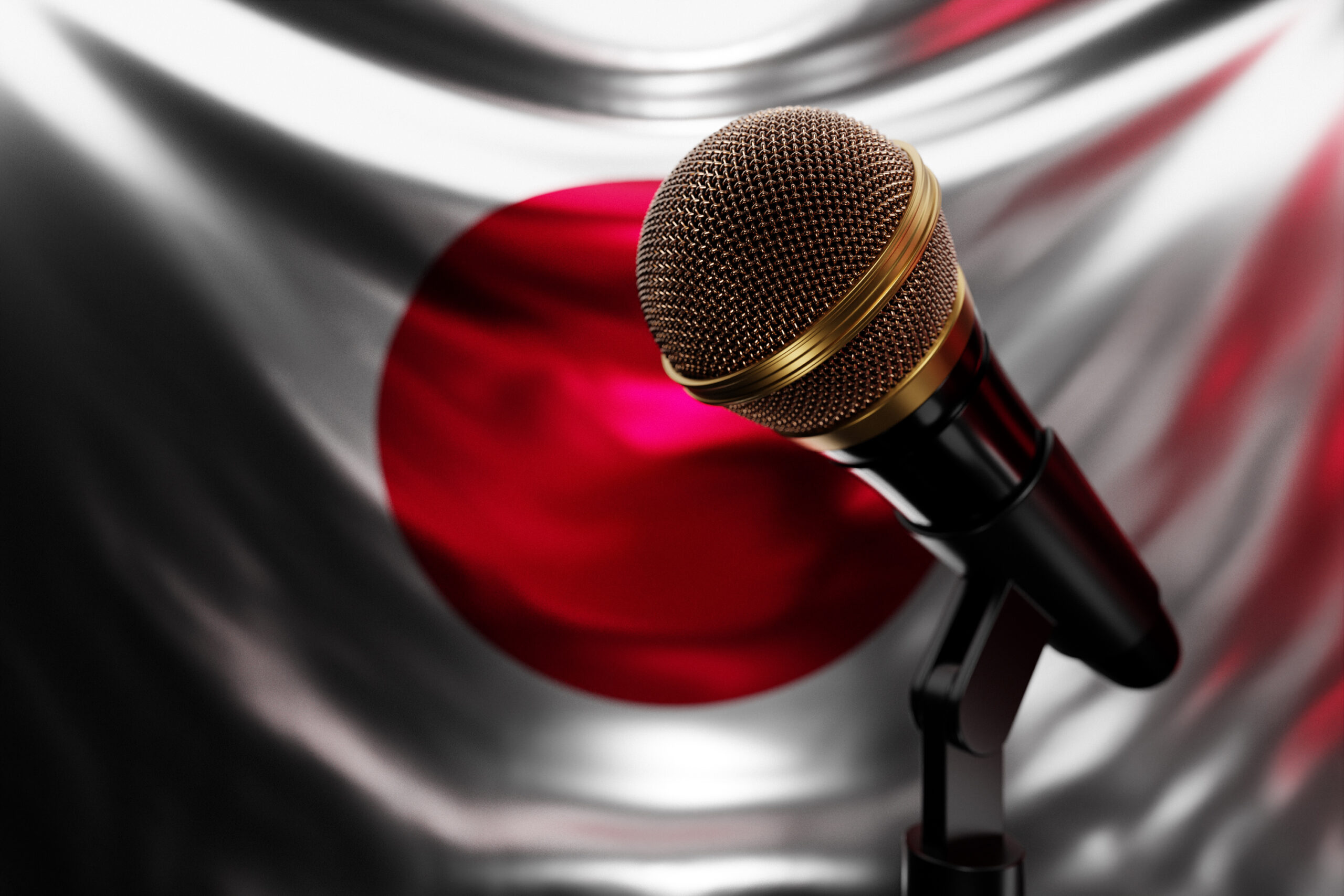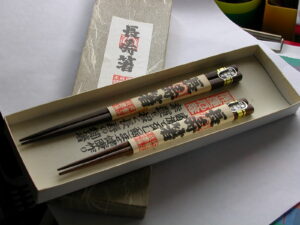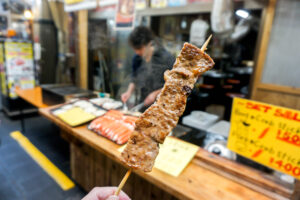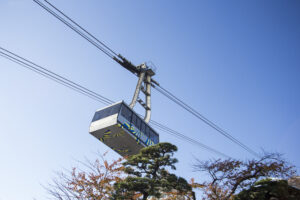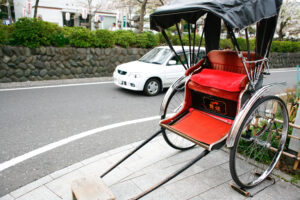In the heart of Japan, amidst its technological marvels and ancient temples, thrives an iconic cultural phenomenon known as karaoke. A symphony of culture and fun, karaoke in Japan is much more than a pastime; it’s a vibrant thread woven into the fabric of Japanese society. From its captivating origins to its status as a global sensation, karaoke exemplifies the unique blend of tradition and innovation that defines Japan. Join us on a melodious journey through the karaoke bars and booths of Japan, exploring how this musical marvel became a cornerstone of entertainment and cultural expression.
1. Unveiling the Origins of Japan’s Karaoke Craze
The story of karaoke begins in the 1970s when it emerged as a revolutionary form of entertainment in the Land of the Rising Sun. Its name, combining "kara" (empty) and "oke" (orchestra), perfectly encapsulates the essence of karaoke – singing along to a music track without the original vocals. Initially, karaoke machines were a luxury item, housed in snack bars and hotel lounges, where patrons could showcase their vocal talents. The invention is credited to Daisuke Inoue, who, although he did not patent the invention, is honored with a tongue-in-cheek Nobel Prize for his contribution to global happiness. Early karaoke machines were rudimentary, requiring coins to operate, and featured a limited selection of songs. Despite these humble beginnings, the concept quickly captured the hearts of the Japanese people. The appeal of karaoke was undeniable, offering an escape from the pressures of daily life and a platform for personal expression. Karaoke soon became a staple of Japanese entertainment, laying the groundwork for a global phenomenon.
2. Karaoke Booths: Japan’s Ultimate Entertainment Gem
Karaoke booths, or "karaoke boxes," are a quintessential aspect of Japan’s karaoke culture. These private singing rooms offer a sanctuary where friends, family, and even business colleagues can gather to belt out their favorite tunes. Karaoke boxes range from small, intimate spaces to large, party-sized rooms, equipped with state-of-the-art sound systems, microphones, and a vast library of songs in multiple languages. The concept of the karaoke box revolutionized the karaoke experience, providing a more personal and comfortable environment compared to the public stage of traditional karaoke bars. Patrons can order food and drinks directly to their rooms, making it a popular option for social gatherings and celebrations. The accessibility and affordability of karaoke boxes have cemented their status as a premier entertainment choice. Across Japan, these karaoke havens are found in every city, from bustling metropolitan areas to quiet suburbs, illustrating their widespread appeal.
3. From Humble Beginnings to Global Sensation
What began as a novel entertainment option in the back alleys of Kobe has grown into a worldwide craze, transcending cultural and linguistic barriers. The global expansion of karaoke can be attributed to the rise of the karaoke box model, which offered a universally appealing format. As Japanese companies began to export karaoke machines in the 1980s, the concept caught fire in other countries, evolving to suit local tastes and preferences. Today, karaoke is a beloved activity in many parts of the world, from the karaoke pubs of the United Kingdom to the KTV lounges of China. The international karaoke market continues to flourish, driven by innovations in technology and the timeless joy of singing. Karaoke competitions, both national and international, further highlight the universal appeal of this Japanese import, bringing together enthusiasts from all corners of the globe.
4. The Art of Karaoke: More Than Just Singing
Karaoke in Japan is an art form that extends beyond mere vocal performance. It embodies self-expression, camaraderie, and even a touch of friendly competition. The Japanese approach to karaoke emphasizes the joy of singing together, rather than focusing solely on vocal prowess. This communal aspect of karaoke fosters a sense of belonging and connection among participants, making it a powerful social tool. Karaoke also serves as a mirror to Japan’s rich musical heritage, offering a repertoire that spans traditional Enka ballads to contemporary J-Pop hits. For many Japanese, karaoke is a way to express emotions and share personal stories through music, adding a layer of emotional depth to the experience. The art of karaoke, thus, lies not in perfection, but in the shared moments and memories created around the microphone.
5. Navigating Japan’s Karaoke Scene: A Beginner’s Guide
For those new to karaoke in Japan, the experience can be both exhilarating and daunting. Navigating the karaoke scene begins with choosing the right venue. Karaoke boxes cater to various group sizes and preferences, offering themed rooms and customizable playlists. Upon entering, users select songs from a digital interface, which can often be filtered by language, genre, and popularity. It’s common practice to order food and beverages, which are delivered directly to the room for a seamless experience. Beginners should not shy away from the microphone; karaoke is about participation and enjoyment, not judgment. Embracing the spirit of karaoke means letting go of inhibitions and embracing the music. With a little practice and encouragement, anyone can become a karaoke aficionado, discovering the joy of singing in the company of friends.
6. The Social Fabric of Karaoke: Connecting Cultures
Karaoke’s impact extends far beyond entertainment; it plays a significant role in connecting cultures. As a universally enjoyable activity, karaoke bridges cultural divides, allowing people from different backgrounds to come together through music. In Japan, karaoke is a conduit for cultural exchange, where international hits and traditional Japanese songs coexist on the playlist. This cultural mingling introduces individuals to new musical genres and perspectives, fostering mutual understanding and respect. Karaoke nights often feature a diverse array of songs, reflecting the global tapestry of music and the interconnectedness of today’s world. Through the universal language of music, karaoke creates a shared space where cultures can meet, mingle, and celebrate their differences and similarities.
Karaoke in Japan is a symphony of culture and fun, a testament to the country’s innovative spirit and its love for music. From its origins in the 1970s to its status as a global sensation, karaoke has evolved into a multifaceted form of entertainment that resonates with people across the world. It is more than just singing; it is an art form that fosters connection, self-expression, and joy. Whether in the private booths of a karaoke box or the lively atmosphere of a karaoke bar, this beloved pastime continues to captivate hearts and voices. As karaoke adapts to technological advancements and shifting cultural trends, its essence remains unchanged — a celebration of life, music, and the moments that bring us together. In the land of endless innovation and rich traditions, karaoke stands as a shining example of Japan’s enduring influence on global entertainment and culture.
